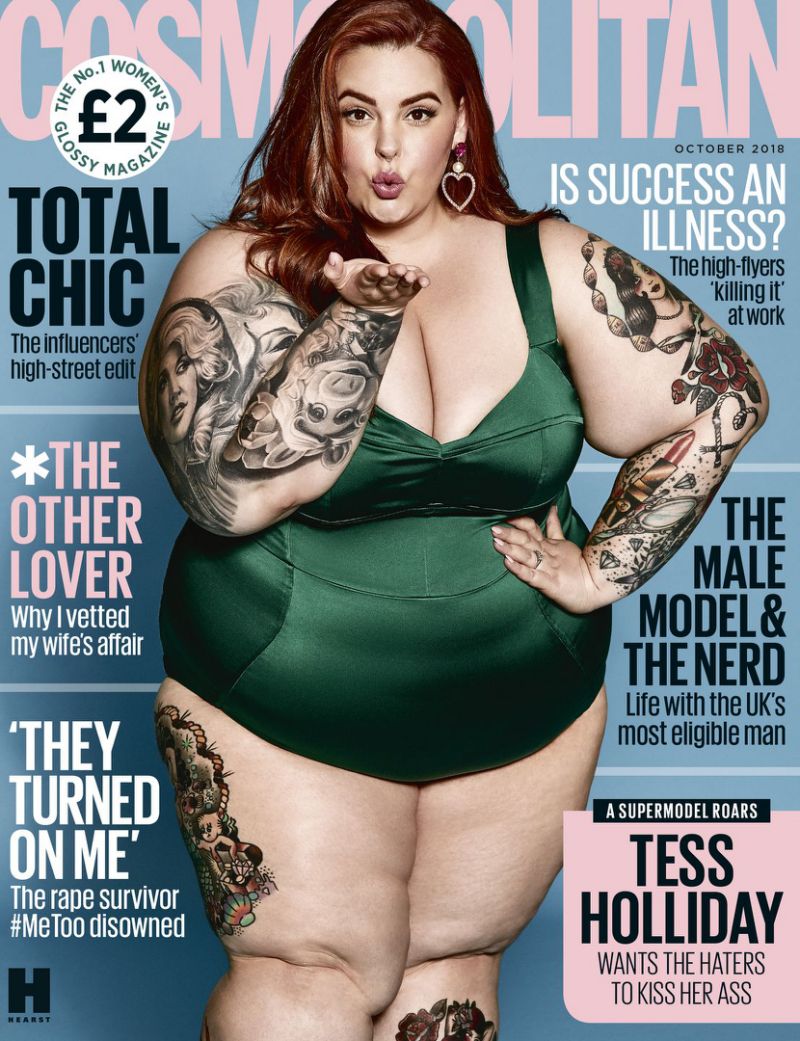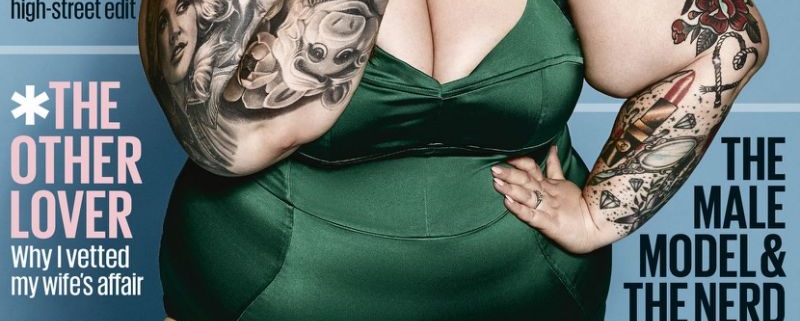There’s been a lot of controversy recently about the body positivity movement glorifying obesity and being overweight. Last week plus size model Tess Holliday has posted her COSMOPOLITAN cover on Instagram further encouraging keyboard warriors all over the globe to criticise and celebrate in equal measure.
So, to add my opinion into the mix, does the body positivity movement promote obesity?
Lets explore that shall we?
1. Judgement will not “cure” obesity.
My own weight loss journey started when I couldn’t find clothes to fit me anymore, when I couldn’t go to the same shops as my friends. When I stopped doing things I enjoyed because I was bigger than everyone else. There were zero people in the media that looked like me, and anyone who was overweight was always depicted as being greedy and lazy.
(I personally became “lazy” after I became overweight, turns out that being ashamed of your body doesn’t make you want to exercise in front of other people.)
You might think then that being an outcast for my size encouraged me to lose weight and therefore judgement must be the best solution to the obesity crisis?
No.
Since habits like comfort eating tend to happen when we need to deal with stress, feeling bullied, marginalised and judged doesn’t promote feelings of wellbeing – quite the opposite.
2. Representation matters.

We all grew up with certain ideas of how we should look. For girls in the 90’s our role models were a very specific body type, and if you didn’t conform to that naturally, it was a problem.
The opinion that seeing bodies of different sizes would make you want to become obese is the same thinking that sex education is going to make kids go out and become sex workers.
Representation of a variety of body types and sizes does not equal becoming overweight.
After all, if all it took was a magazine cover to force change then the YEARS of one body type being represented would have lead to every woman being a size 8.
If all it took was one image to cause weight change I would be out of a job.
Seriously.
People become overweight for different reasons, and trust me it’s not because we think it’s cool.
3. Health isn’t always represented by size.
The argument has always been that being overweight is unhealthy.
While you could argue, quite correctly, that it is easier to become overweight by eating a diet that is high in junk food, low in nutrients and overloaded with calories,
it’s also possible to become overweight by eating too much of any type of food.
^^^Yep.
Ask anyone who has ever underestimated a serving of peanut butter – it is possible to be overweight eating a variety of foods.
In fact with the creation of a variety of gluten free, dairy free and vegan based “treats” it’s easier than ever to find “healthy” foods that are loaded with empty calories that contribute to weight gain.
The opposite is also true, I have met many people who – on the outside – would be deemed as being a “healthy” size but their lifestyle habits are anything but. From eating junk food and being sedentary (without gaining much weight) to keeping any excess weight off by hardly eating and overexercising, both of these habits are unhealthy.
Not everyone who is deemed to be overweight has a bad diet and poor life choices.
Not everyone who is deemed to be a healthy size follows “good” lifestyle choices.
More importantly, health isn’t just about what you eat or how much you move.
Do you sleep enough?
Do you de-stress regularly?
Is your gut bacteria healthy and happy?
Do you jump out of bed in the morning ready for the day?
Are your hormone levels in check?
Do you generally feel happy?
These are markers of health that are often ignored and overlooked but are just as important.
4. Other peoples health is really none of your business.
For me, you might argue that other people’s health is my business. And quite literally it is, but only for those clients who pay me.
If someone pays me to help them change, I’m all over that. I will help you.
But if someone is just walking down the street being themselves then who cares if they’re healthy or unhealthy? Leave them be.
Let me pose these questions,
Why does someone else’s health matter to you?
Why does this “overweight” person living their life as they damn well please make you uncomfortable?
Why are you online arguing with strangers about who is or isn’t unhealthy?
The facts are that if someone else is making you ANGRY just by existing, you have some work to do on yourself.
Honestly.
5. R-E-S-P-E-C-T
Everyone deserves respect.
Look, the world is hard enough at the moment. Look around you, everyone is stressed. You likely know and meet people on a daily basis who are struggling with anxiety or depression or anger issues.
Do we need to add to this negative noise by disrespecting other people?
You don’t have to like everyone.
You don’t have to accept everyone.
To be perfectly honest, if you want you can choose to hate everyone – I really don’t care.
But keep that judgement to yourself.
If you’re an adult – we’re not 9 years old anymore, this isn’t school and it’s never ok to bully anyone. You cannot claim ignorance if, as an adult, you’re out there shaming other people based on how they look, what they eat or whether they go to the gym.
So Tess Holliday is on the cover of Cosmo and she’s not a size 8 – big deal. Surely we have more important things to worry about?
To sum up…
You deserve to be happy, regardless of your shape or size. Focus on your life and your health and finally, if anyone has anything to say to the contrary throw up your middle finger, show them Tess Holliday on the cover of COSMOPOLITAN and tell them that you can do whatever the hell you damn well want to.
Because you are worthy. No caveats needed.
Ainzlie




